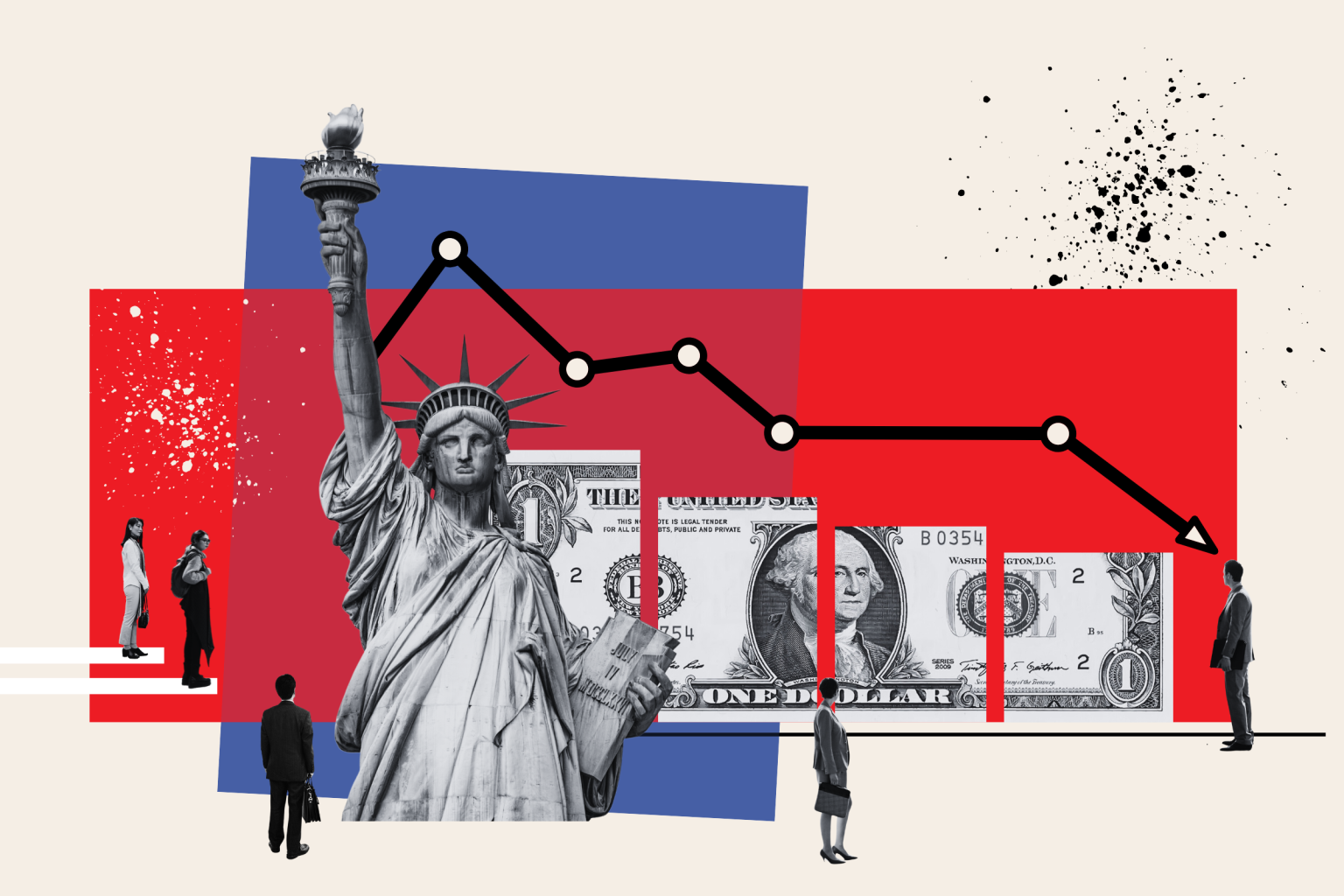A recent exclusive poll conducted by Newsweek revealed that a majority of Americans believe the U.S. economy is heading in the wrong direction, with many attributing this sentiment to President Joe Biden’s economic agenda, known as Bidenomics. However, experts have pointed out that the U.S. economy is actually performing relatively well when compared to other Western economies. The complexity of the current economic situation, which includes a combination of factors such as fiscal, monetary, and global circumstances, has contributed to a sense of pessimism among Americans.
According to the experts interviewed by Newsweek, part of the negative outlook on the economy can be traced back to the lingering effects of inflation that followed the pandemic. Although inflation has started to decrease from previous peaks, it remains a concern for many Americans who are still feeling the impact of rising prices on their daily expenses. Despite the overall positive growth of the U.S. economy compared to other advanced countries, public perception remains focused on recent experiences with inflation and economic challenges.
A survey conducted by Redfield & Wilton Strategies for Newsweek revealed that half of Americans believe the U.S. economy is moving in the wrong direction, with only a quarter saying it is heading in the right direction. Additionally, many Americans reported that their financial situation has worsened over the past year, with a significant portion feeling worse off than they were before the pandemic. These sentiments are reflected in the responses of eligible voters in the country, highlighting a general feeling of financial insecurity among the population.
Despite the widespread pessimism among Americans, economists maintain that the U.S. economy is in a relatively good place due to the effective policy measures implemented during key periods, such as the pandemic. Factors such as inflation, wages, and savings are closely monitored indicators of economic health. While inflation remains a concern, core inflation has shown signs of decreasing, and the rise in wages has helped to bolster consumer spending and overall economic stability.
The importance of the economy as a critical issue for voters is evident in recent surveys, with a majority of respondents identifying it as the most pressing concern. As the country approaches the November election, the state of the U.S. economy and public perception of it will play a crucial role in shaping political outcomes. Despite differing views on President Biden’s economic agenda, economists believe that the administration’s stimulus efforts have been instrumental in preventing a more severe economic downturn during the pandemic.
Ultimately, the disconnect between public perception and economic reality underscores the challenge of navigating complex economic issues and communicating their impact to the general population. The intense polarization in the U.S. contributes to divergent views on the economy, with partisan biases influencing individuals’ assessments of their own financial well-being. Looking ahead to the future, the ability to address these perceptions and engage in meaningful dialogue about economic policies will be essential for fostering a more informed and constructive public discourse.


